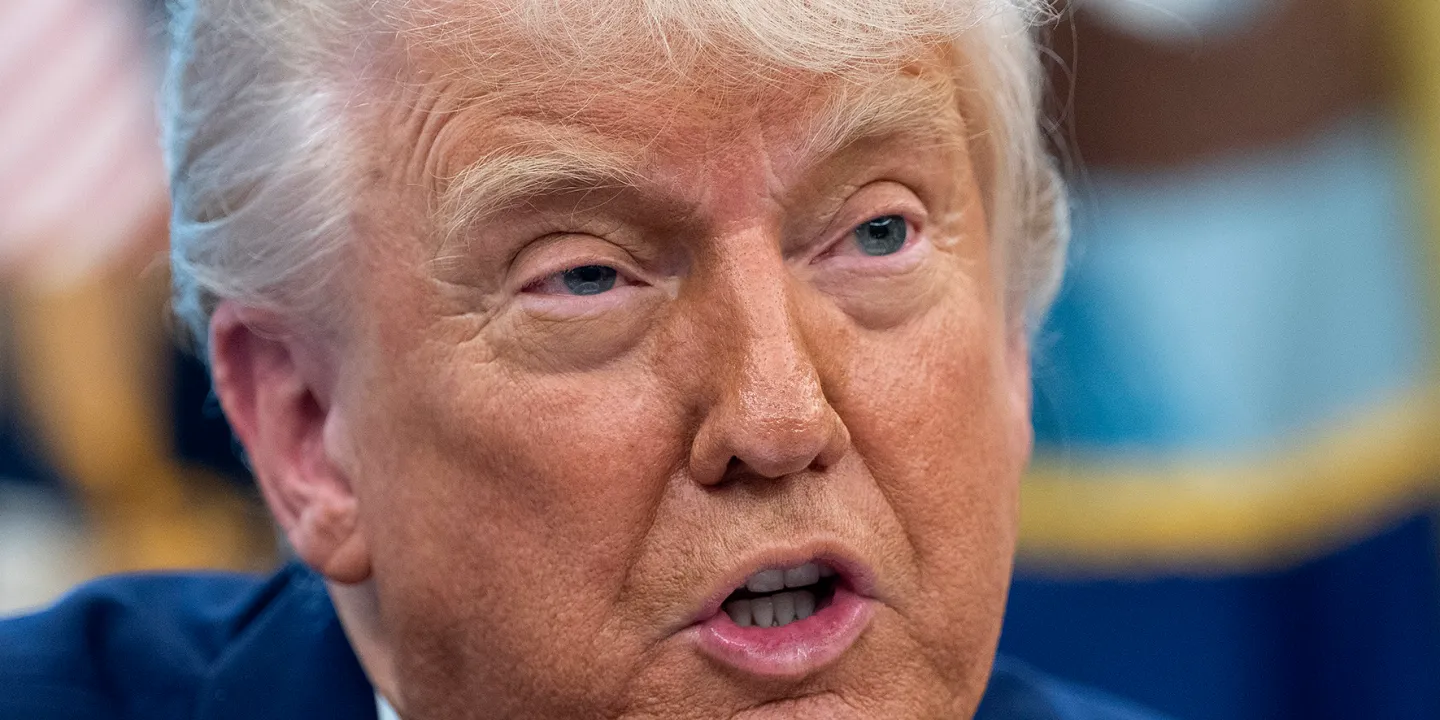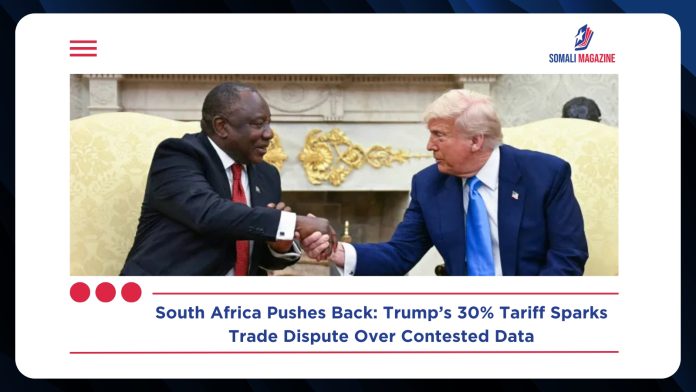Facebook Twitter (X) Instagram Somali Magazine - People's Magazine
South Africa says Trump relying on ‘contested’ data to raise tariffs, as Pretoria pushes back against a sweeping 30% import tax announced by the U.S. president, calling it a misrepresentation of trade realities and a threat to bilateral relations. The tariff, set to take effect on August 1, has ignited a diplomatic standoff between two of Africa’s and America’s largest trading partners.
President Donald Trump’s administration claims the tariff is a corrective measure to address what it calls a “persistent and unfair trade imbalance” favoring South Africa. In a letter to President Cyril Ramaphosa, Trump argued that South Africa imposes high tariffs on U.S. goods while benefiting from duty-free access under the African Growth and Opportunity Act (AGOA). He stated that the new tariff would apply to all South African exports, separate from existing sectoral tariffs, and warned that any retaliatory measures would result in additional penalties.
South Africa, however, has strongly disputed the basis of Trump’s decision. Ramaphosa’s office released a statement asserting that the 30% tariff is based on a “contested interpretation” of trade data. According to Pretoria, 77% of U.S. goods enter South Africa duty-free, and the average tariff on the remainder is just 7.6%—far below the figures cited by the U.S. administration.
“This is not an accurate representation of available trade data,” said presidential spokesperson Vincent Magwenya. “South Africa remains committed to fostering a balanced and mutually beneficial trade relationship with the United States, and we urge both sides to sit down and assess the facts objectively.”
The tariff announcement has rattled South African industries, particularly the automotive and agricultural sectors, which rely heavily on U.S. market access. Analysts warn that the citrus industry alone could lose up to 35,000 jobs if the tariff is implemented without modification.

South Africa has submitted a Framework Deal to Washington addressing concerns raised by the U.S., including alleged trade surpluses and non-tariff barriers. Pretoria is now awaiting a response and a negotiation template from the U.S. government. Ramaphosa has called for urgent diplomatic engagement and proposed an extension of the tariff deadline to allow for meaningful dialogue.
Despite the tension, both sides have signaled a willingness to negotiate. Trump noted that the 30% tariff could be adjusted “upward or downward” depending on the outcome of talks. Ramaphosa welcomed this flexibility, emphasizing that South Africa would continue its diplomatic efforts to avoid a full-blown trade war.
The dispute comes at a time of shifting global trade dynamics, with Trump’s administration pursuing a broader strategy of “reciprocal tariffs” targeting countries deemed to have unfair trade practices. South Africa is among 14 nations facing similar measures, raising concerns across the continent about the future of AGOA and U.S.-Africa trade relations.
As negotiations unfold, South Africa is also exploring alternative export markets and accelerating economic diversification to reduce dependence on U.S. trade. The government has urged local businesses to prepare for potential disruptions and adapt to a changing global landscape.
Whether the contested data can be reconciled remains to be seen, but for now, the tariff standoff has placed a spotlight on the complexities of international trade and the importance of transparent, fact-based diplomacy.

